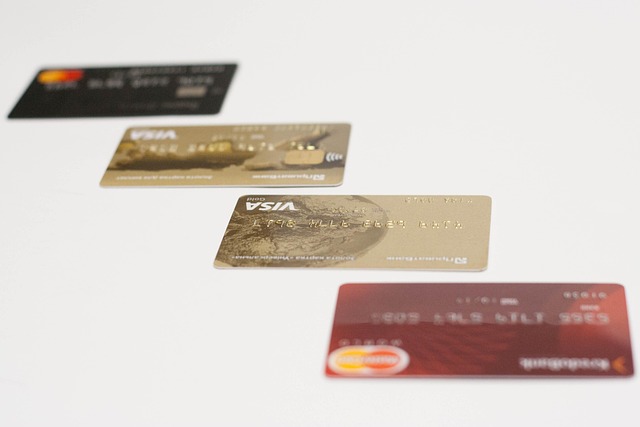Credit Cards in Ireland Demystified: What You Need to Know Before Applying
Credit cards have become an integral part of modern financial life in Ireland, offering convenience, security, and potential rewards. However, navigating the world of credit cards can be complex, especially for first-time applicants. This article aims to demystify credit cards in Ireland, providing essential information to help you make informed decisions before applying for one.

What are the Different Types of Credit Cards Available in Ireland?
Irish consumers have access to a variety of credit card types, each designed to cater to different needs and financial situations. The most common types include:
-
Standard Credit Cards: These are general-purpose cards suitable for everyday purchases and balance transfers. They typically offer a moderate interest rate and may include basic rewards programs.
-
Rewards Credit Cards: These cards allow users to earn points, cashback, or miles on their purchases. They’re ideal for frequent spenders who can maximize the benefits of the rewards program.
-
Low Interest Credit Cards: Designed for those who occasionally carry a balance, these cards offer lower interest rates than standard cards, potentially saving money on interest charges.
-
Balance Transfer Cards: These cards allow users to transfer existing credit card balances, often offering a low or 0% interest rate for a promotional period. They can be useful for consolidating debt and reducing interest payments.
-
Student Credit Cards: Tailored for college students, these cards typically have lower credit limits and may offer student-specific perks or rewards.
-
Business Credit Cards: Intended for small business owners or company executives, these cards often include features like expense tracking and higher credit limits.
Understanding these different types can help you choose a card that aligns with your financial needs and spending habits.
How can I easily apply for a credit card in 2025?
Applying for a credit card in Ireland has become increasingly streamlined, with many providers offering online application processes. Here’s a step-by-step guide to help you apply:
-
Check Your Credit Score: Before applying, it’s wise to review your credit report. You can request a free copy of your credit report from the Central Credit Register.
-
Compare Card Offers: Research different credit card options from various banks and financial institutions. Look at interest rates, fees, rewards, and any special introductory offers.
-
Gather Necessary Documents: Typically, you’ll need proof of identity (passport or driver’s license), proof of address (utility bill or bank statement), and proof of income (pay slips or tax returns).
-
Choose Your Preferred Card: Select the card that best suits your needs based on your research and financial situation.
-
Complete the Application: Most banks now offer online applications. Fill out the form accurately, providing all required information.
-
Submit Supporting Documents: You may need to upload or send copies of your documentation to support your application.
-
Wait for Approval: The bank will review your application and credit history. This process can take anywhere from a few minutes to several days.
-
Activate Your Card: Once approved, you’ll receive your card by mail. Follow the provided instructions to activate it.
Remember, responsible use of your new credit card is crucial for maintaining a good credit score and financial health.
Key Benefits of Using Credit Cards in 2025
Credit cards offer several advantages that can enhance your financial management and purchasing power:
-
Convenience: Credit cards provide a quick and easy way to make purchases without carrying cash, both in-store and online.
-
Fraud Protection: Most credit cards offer robust fraud protection, making them safer to use than debit cards or cash, especially for online transactions.
-
Building Credit History: Responsible use of a credit card can help build a positive credit history, which is crucial for future loan applications.
-
Rewards and Cashback: Many cards offer rewards points, miles, or cashback on purchases, providing additional value for your spending.
-
Interest-Free Periods: Most credit cards offer an interest-free period on purchases if you pay your balance in full each month.
-
Travel Benefits: Some cards offer travel insurance, airport lounge access, and other travel-related perks.
-
Consumer Protection: Credit card purchases often come with additional consumer protections, such as extended warranties or purchase protection.
-
Budgeting Tools: Many credit card providers offer online tools and apps to help track spending and manage your budget.
-
Emergency Funds: Credit cards can serve as a financial safety net in emergencies, providing access to funds when needed.
-
Global Acceptance: Major credit cards are widely accepted worldwide, making them convenient for international travel and online shopping from foreign retailers.
While these benefits are significant, it’s important to use credit cards responsibly to avoid debt and high interest charges.
Credit cards can be powerful financial tools when used wisely. By understanding the types of cards available, knowing how to apply, and being aware of the potential benefits, you can make an informed decision about whether a credit card is right for you and which one best suits your needs. Remember to always read the terms and conditions carefully and use your credit card responsibly to maintain financial health and a good credit score.




